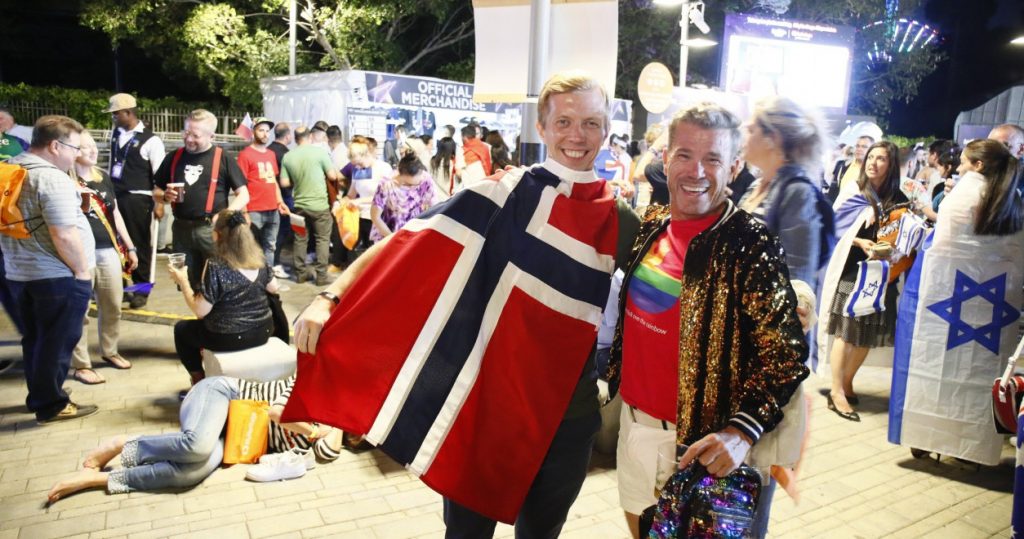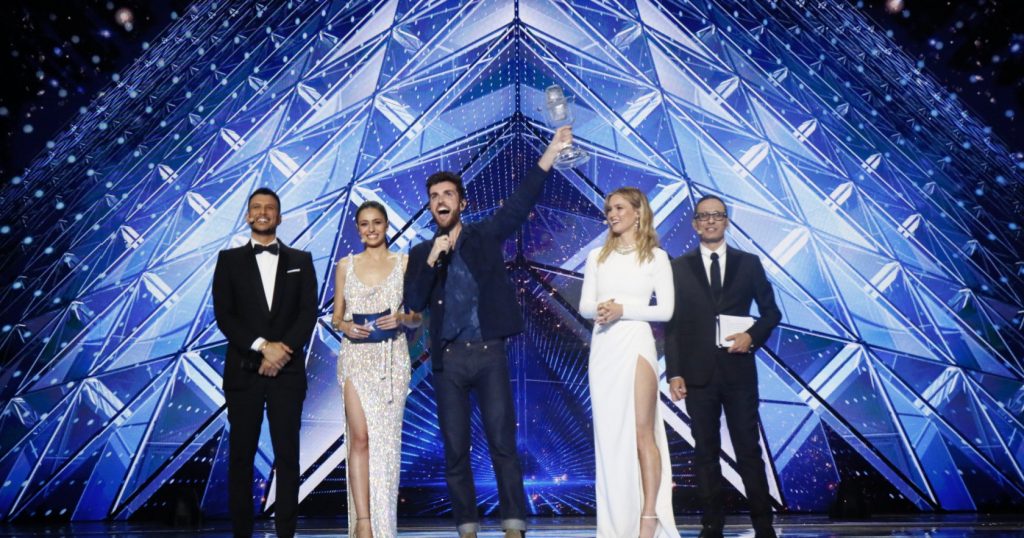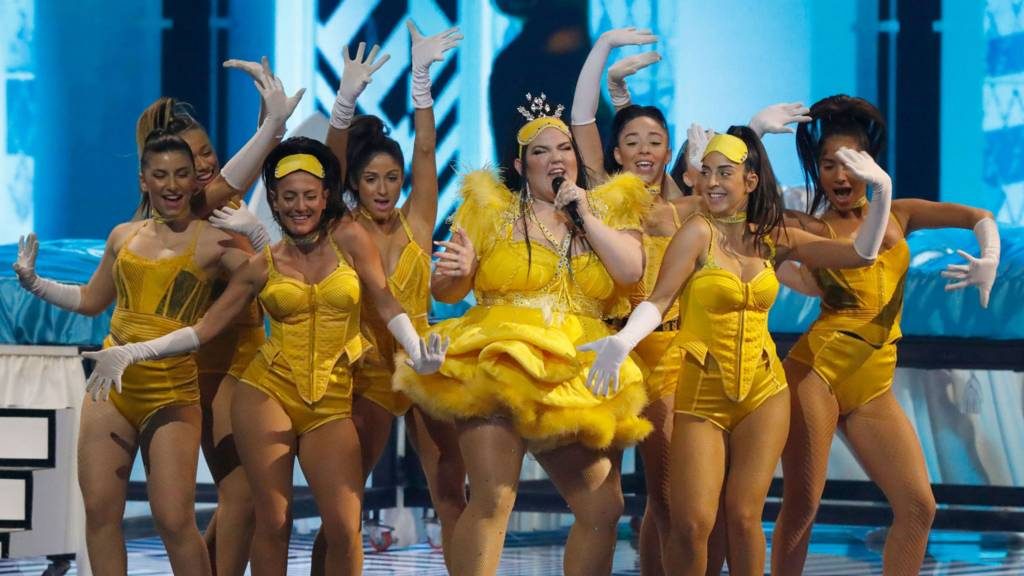Australia/Israel Review
Eurovision’s other winner
May 29, 2019 | Michael Dickson

Israel’s Eurovision song entry barely made a dent on the scoreboard, but there’s no doubt that the Jewish state was the real winner of the 2019 Eurovision Song Contest.
Israel was hosting the competition for the third time in history but for the first time in 20 years – and in a new era where Eurovision is simulcast on YouTube and more and more countries have joined the contest; an age of instant responses and scrutiny via social media with a global viewing audience that has swelled to 200 million people.
Eurovision is always loud, often garish, and I admit to watching some of the songs with the “mute” button pressed. But to be the host is a big deal, and for Israel more than most. It also requires a lot – and Israel more than delivered.
When Netta Barzilai triumphantly lifted the trophy last year, questions and concerns loomed: Which city would host? Would the contest be derailed – or even cancelled – by the Boycott, Divestment and Sanctions (BDS) movement? Could Israel do it and not go bankrupt in the process, or would the whole thing be a disaster?
Israel can feel vindicated on every level.
Tel Aviv was the natural home for camp, party-loving Eurovision, with no disrespect to any other city, including the capital.
The tourism influx was a boon to Jerusalem as it was to Tel Aviv and elsewhere, with thousands of visitors converging on the Jewish state. In 2018, tourism was at an all-time high, with 4.1 million people coming to Israel, up 14% from the previous year. With the Eurovision boost, 2019 could surpass even that.
And to answer the question of whether geographically small Israel could host a major event, the largest music competition in the world, the answer this week is a resounding yes. Israel’s national public broadcaster, KAN, put on a slick, polished, dynamic production. The stage looked every bit as fabulous as previous venues. Outside the concert hall, Tel Aviv’s Eurovision Village was jam-packed all week and the positivity of the event resounded.
Israel’s win was a slam-dunk defeat for the discriminatory BDS activists. It was a bad week for BDS bogeyman Roger Waters, who has sullied Pink Floyd’s reputation by being mired in antisemitic scandals, including flying a pig with a Star of David over his concerts. He put out a video pleading with artists to pull out. They didn’t, and his rant made him look more desperate than he usually does. BDS online videos aiming at promoting a boycott looked pathetic, and a real effort to derail the contest was thwarted at every level.
Meanwhile, the music played on. The Eurovision semifinals brought the Shalva Band – made up of musicians and singers with special needs – to public attention. Fresh from performing at the national ceremony on Independence Day, Shalva took the Eurovision semi-final stage by storm, performing “A Million Dreams” using braille and sign language. True to its Hebrew name – Shalva means “serenity” – its performance brought inner peace to all who watched, and also brought tears to the eyes of the audience and viewers alike.
Indeed, for viewers with disabilities – cognitive disabilities, hearing impairment, vision loss – Israel produced the most accessible Eurovision that has ever been broadcast. This was the result of an innovative “hackathon” that took place prior to the competition, bringing Israeli brainpower to create an impressive, inclusive result.
Israel’s humanity was on display. Viewers in their millions got a taste of what the Israeli people are like and – in the hosts, hailing from different backgrounds, Arab and Jewish, straight and gay – a taste of Israeli diversity, too. The truth shone through that in Israel, quiet coexistence happens every day.

The Israeli comperes, here with Dutch winner Duncan Laurence, showcased Israel’s diversity
Amid the Eurovision celebration of diversity, I hope it’s not lost on millions of viewers that, while in Israel people have the freedom to love who they want and be who they are, just kilometres away LGBTQ people are persecuted and killed in other Middle Eastern countries. Maybe Israel’s hosting of the competition showed viewers that we need not accept that reality.

Local champion Netta Barzilai personified Israel’s quirky, creative flair
Eurovision even got biblical, as diverse performers sang together under a gleaming Star of David in a beautiful arrangement led by Idan Raichel on stage, with the stunning Marc Chagall stained-glass windows projected behind them.
The event also showcased Israel’s growing international star power. Madonna showed up for Israel, backed up by rapper-of-the-moment Quavo. Fashion designer Jean-Paul Gaultier and actor Will Ferrell were in attendance. Israeli stars Bar Rafaeli and Gal Gadot shone, and presenters Assi Azar, Lucy Ayoub and Erez Tal – well-known to Israelis but less so to internationals – more than held their own.
There was a flash of politics – but in an uncontroversial way. When Madonna’s dancers flaunted the European Broadcasting Union’s rules and wore an Israeli and Palestinian flag as they walked arm in arm, the Israeli audience didn’t recoil – they applauded. This showed up the sullen, leather-clad anarchist Icelandic band, whose own flag-waving just looked like the stunt that it was. (The band had previously challenged Prime Minister Binyamin Netanyahu to a bout of traditional pants-pulling Icelandic wrestling – he did not respond to the offer.)
Israeli contestant Kobi Marimi didn’t come close to taking the competition, but tearing up at the end of his performance on a historic night in Israel earned him a place in the hearts of Israelis and people of goodwill who were watching. His emotions were emblematic of how Israelis are bursting with pride about this event.
Israel is a tiny, plucky (and yes, Netta, clucky) country. Surrounded by mostly hostile neighbours, Israelis love to succeed, to give to the world, to be appreciated and to project that love back. That was the Israel that Eurovision viewers saw. The bar for Israel’s hosting was set extraordinarily high – and, undoubtedly, Israel emerged a winner.
Michael Dickson is the executive director of StandWithUs – Israel. © Jerusalem Post (www.jpost.com) reprinted by permission, all rights reserved.
Tags: Anti-Zionism, Europe, Israel






